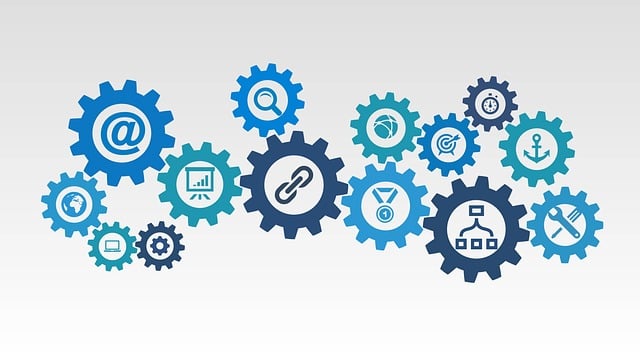AI automation is transforming vehicle service shops by streamlining processes, boosting efficiency and customer satisfaction, and driving marketing success in a competitive auto repair industry. AI systems handle tasks like scheduling, inventory control and quote generation, freeing human resources for intricate diagnostics and repairs. This optimization reduces costs and enables faster, more precise services. AI-driven marketing tools personalize campaigns based on data from service records, vehicle models and customer preferences, increasing engagement and business growth. Implementing AI systems enhances client satisfaction through personalized interactions with AI chatbots, while predictive analytics, automated billing and reduced errors free up staff for tasks requiring human expertise. Regular KPI analysis ensures adjustments to align AI strategies with business goals over time.
“In the dynamic realm of vehicle service shops, Artificial Intelligence (AI) automation is revolutionizing operations. This article explores the transformative potential of AI, highlighting its benefits and offering strategic insights for implementation. From streamlining workflows to enhancing customer experiences, AI systems drive marketing success in auto repair.
We’ll delve into understanding AI’s role, strategies for effective integration, and measuring its impact on business growth. Unlocking these secrets can propel your shop to the forefront of the industry.”
- Understanding AI Automation: Benefits for Vehicle Service Shops
- Implementing AI Systems: Strategies for Marketing and Customer Engagement
- Measuring Success: Evaluating the Impact of AI in Auto Repair Businesses
Understanding AI Automation: Benefits for Vehicle Service Shops

AI automation is transforming vehicle service shops by streamlining processes and enhancing efficiency, resulting in improved customer satisfaction and marketing success in auto repair. AI systems can handle repetitive tasks such as scheduling appointments, managing inventory, and generating quotes, freeing up human resources to focus on more complex work like diagnostics and repairs. This not only reduces operational costs but also enables staff to provide faster and more accurate services.
Moreover, AI-driven marketing tools can help auto repair shops target the right customers at the right time. By analyzing data from previous service records, vehicle models, and customer preferences, AI systems can personalize marketing campaigns, increasing engagement and loyalty. This tailored approach allows shops to promote relevant services, attract new clients, and ultimately drive business growth in a competitive market.
Implementing AI Systems: Strategies for Marketing and Customer Engagement

Implementing AI Systems offers vehicle service shops a powerful tool to enhance their marketing and customer engagement strategies, ultimately driving business growth and success in the competitive auto repair industry. By leveraging AI, these shops can personalize interactions with clients, offering tailored recommendations and proactive maintenance alerts. For instance, AI chatbots can provide instant customer support, answering common questions and guiding users through scheduling appointments or ordering parts. This level of interactivity not only improves customer satisfaction but also collects valuable data for further insights.
Additionally, AI systems enable efficient marketing campaigns by analyzing vast amounts of customer data to identify trends and preferences. Shops can then create targeted promotions, loyalty programs, and personalized offers to attract and retain customers. From predictive analytics for parts inventory management to automated billing and invoicing, these technologies streamline operations, reduce human errors, and free up staff time, allowing them to focus on complex tasks that require a human touch.
Measuring Success: Evaluating the Impact of AI in Auto Repair Businesses

Measuring the success of implementing AI systems in vehicle service shops is crucial for understanding their true impact on business efficiency and profitability. Key performance indicators (KPIs) should be established to evaluate every aspect of the AI integration process, from improved customer satisfaction rates to reduced operational costs. By analyzing data such as job completion time, error rate reduction, and technician productivity, auto repair businesses can gain valuable insights into the marketing success of their AI strategies.
For instance, AI-driven diagnostics can significantly enhance accuracy in identifying vehicle issues, leading to faster service times and happier customers. Moreover, efficient automation processes free up technician time, allowing them to focus on more complex repairs, thereby increasing overall shop productivity and revenue potential. Regularly reviewing these metrics enables auto repair shops to make data-backed adjustments, ensuring their AI systems for marketing success in auto repair remain effective and aligned with business goals over time.
AI automation is transforming vehicle service shops, offering significant benefits from enhanced efficiency to improved customer experiences. By implementing AI systems strategically, focusing on marketing and engagement, shops can not only streamline operations but also achieve notable success in the competitive auto repair landscape. Measuring the impact of these innovations allows businesses to refine their approach, ensuring they stay ahead of the curve in terms of both technological advancement and customer satisfaction. AI systems for marketing success in auto repair are no longer a luxury but an essential tool for thriving in today’s digital era.
